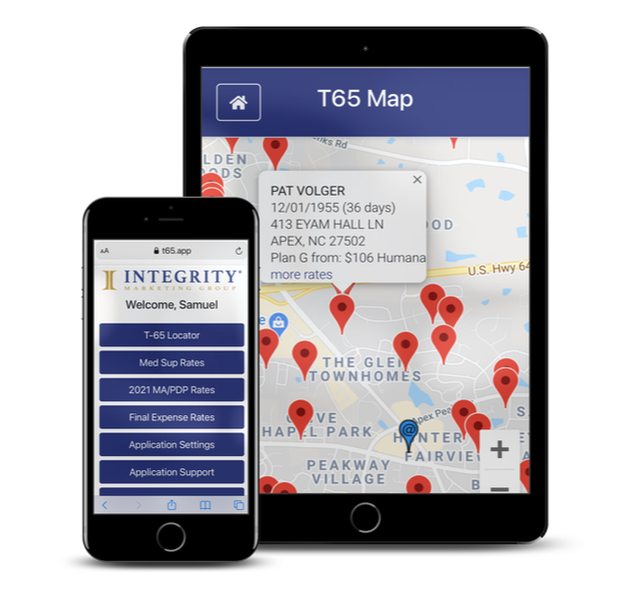Free Prospects
|
If you're contracted with us, we will set you up with 500 free prospects. We can pull phone numbers and addresses and target specific demographics, according to your specifications. All phone numbers have been scrubbed against the Do Not Call registry. To take advantage of them, please complete the form below.
|
Targeted Social Media Leads
|
Running ads for leads on social media is cost effective and easy to do. If you're looking for Medicare eligibles, then Facebook is the perfect place to run ads. We can even provide the ad content for you. Just visit our social media page to request content. Download our Facebook Ad Guide and learn how to run and ad to get leads from Facebook.
|
Website Leads
|
Capture leads on your website with your own branded Medicare Supplement quoting tool. Most Medicare eligibles turn to the internet for information and quotes. Allowing your website visitors to run their own Medicare Supplement quotes gives them the tools they need to start their research. The tool is easy to use and FREE for our contracted agents.
|
Turning 65 Prospecting Tool
|
Use our online tool to narrow down prospects who will be turning 65 within a certain geographic area. The tool provides prospect addresses and gives you access to Medicare Supplement, Medicare Advantage, PDP and Final Expense quoting capabilities as well as underwriting guides. Access from any device and change your geographic location by moving the blue pin. Set up your preferred settings and output requirements and get more Medicare eligible clients within minutes.
Be sure to enable location services in your browser.
| ||||||




